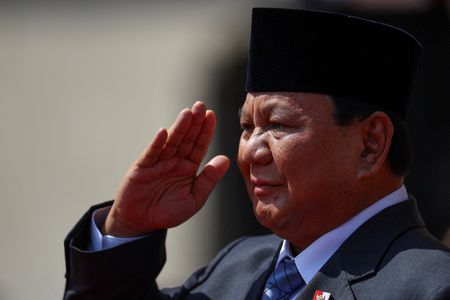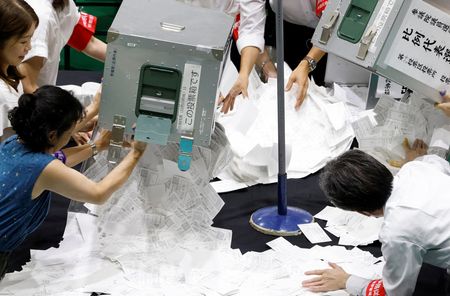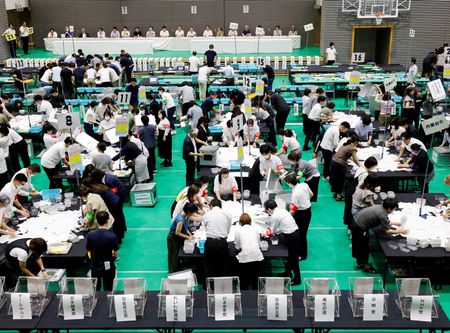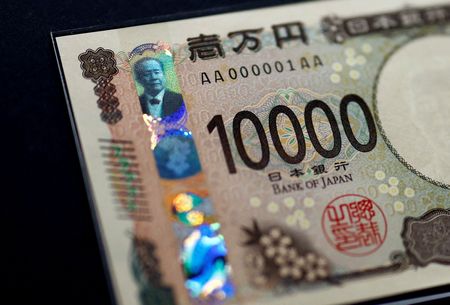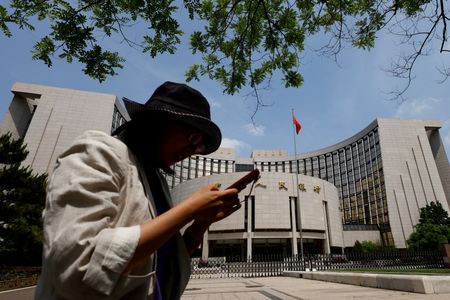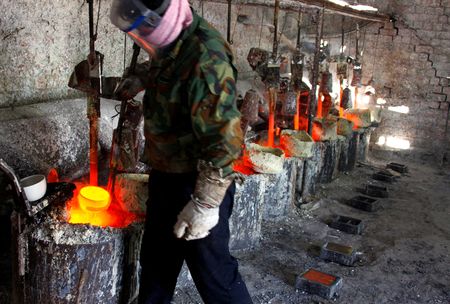By Stefanno Sulaiman
JAKARTA (Reuters) – The lobby of Indonesia’s Economic Affairs ministry was a bit darker this week when some lights were turned off as the minister looked for savings after President Prabowo Subianto ordered $19 billion of budget cuts to help fund election promises.
Ministers have responded to the presidential direction by cutting spending across the board, from maintenance of roads and bridges to travel as well on operating costs and new equipment.
The budget savings can help fund Prabowo’s flagship free school meals programme, set to cost $28 billion annually when fully implemented, and other stimulus measures, but some analysts warned such deep and sudden cuts could disrupt services and clip economic growth.
“I think this cut is too extreme, because we don’t really know for sure the impact of free meals on the economy. That would not be as big as the government being able to provide optimal services for the people, good roads and so on,” said Jahen Rezki, an economist with University of Indonesia.
The Public Works ministry, in charge of most of the government’s infrastructure investment, has been ordered to cut 80% of its budget, including maintenance spending on roads and bridges, local media reported.
Ministries have been told to cut spending on travel, consultants, training, stationery and in other areas.
“Related to budget efficiency, our ministry budget was cut by 52.5%, so to symbolise that we were cut, we turned off the lights,” Economic Affairs Minister Airlangga Hartarto said.
Investment Minister Rosan Roeslani said his ministry would invite investors to come to Indonesia or offer them virtual meetings, rather than have staff travel.
The hotels and restaurants association said if the government cancelled seminars and most domestic travel, the hospitality and transportation sectors would be hit, its secretary general Maulana Yusran told local media.
PROGRAMME EXPANSION
The spending cuts come soon after the government cancelled most of a legislated tax hike, complicating efforts to keep the budget deficit under control.
During last year’s election campaign, investors were worried about Prabowo’s fiscal strategy after the former general said he would take on more debt to fund his election promises.
And Prabowo is now considering a request for an extra 100 trillion rupiah of funding to rapidly expand the scheme soon after its launch, flagged as a way to pump up economic growth.
Some economists think the efficiency drive on government spending could be good for Southeast Asia’s biggest economy if they remove unnecessary expenditure.
“I am cautiously optimistic development spending and fiscal pump priming will be able to shore up the economy,” UOB economist Enrico Tanuwidjaja said.
($1 = 16,327 rupiah)
(Reporting by Stefanno Sulaiman, Gayatri Suroyo; Editing by John Mair)

